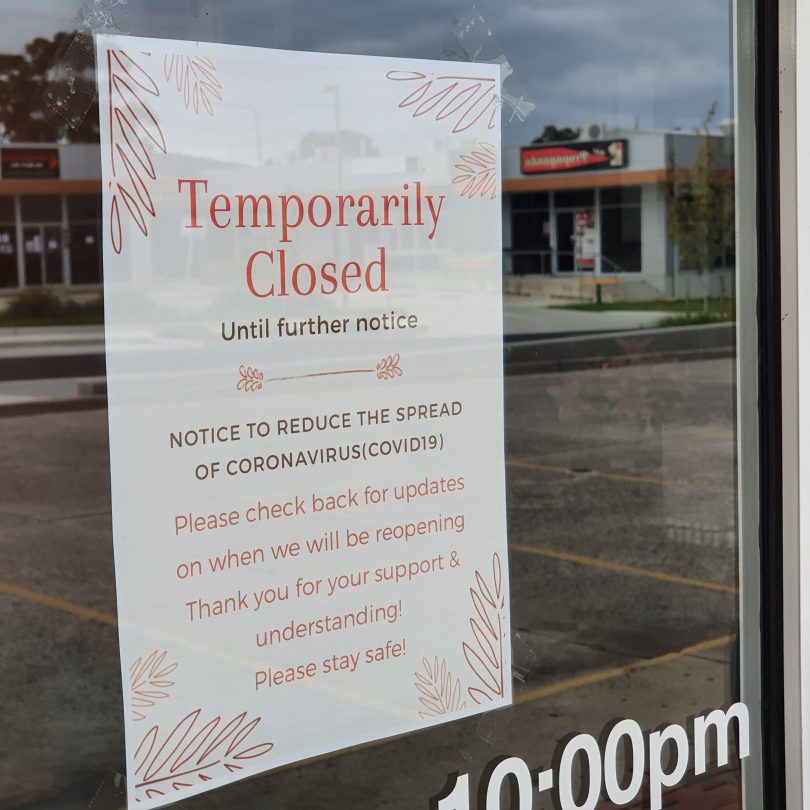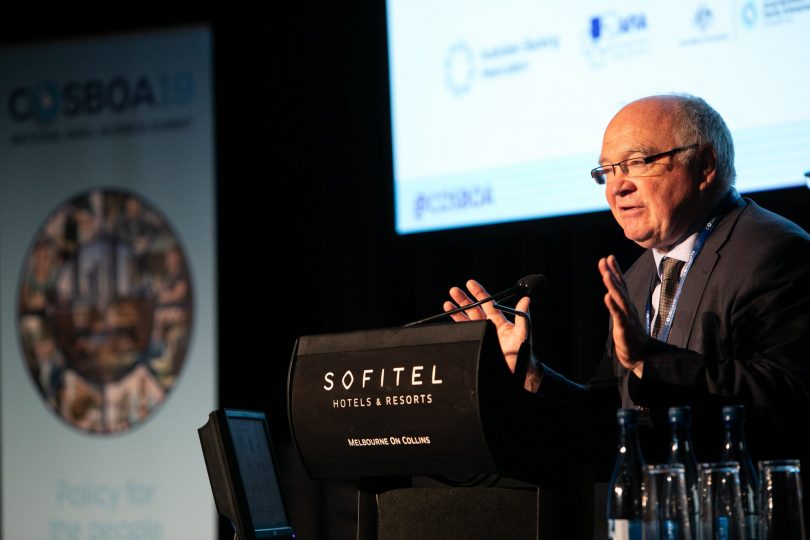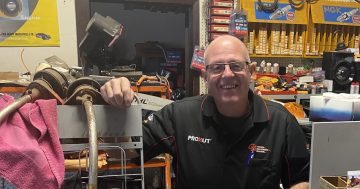
One of many shops temporarily closed due to COVID-19. Photo: Region Media.
The way out of the pandemic needs to be sensible and staggered or else small businesses will suffer twice, according to the country’s peak small business lobby, the Council of Small Business Australia (COSBOA).
COSBOA CEO Peter Strong says the government needs to make sure any lifting of social distancing measures and business lockdown requirements is permanent, lest it breaks the will of small businesses to trade.
If we have the lockdown lifted, only to be reimposed a month or two later, the consequences would be debilitating for the even the strongest-willed owners, he said.
“People would just give up in the end,” Mr Strong told Region Media.
“You would go and open, clean everything up, organise your staff, get your stock and food in so you have to spend a bit of money, you have it all in there and then a month or two later you have to close down again.
“So you have spent money – money that you probably did not have – and then you have to close down again. You are better off staying closed a bit longer than opening and closing again.”
Business lobbies, unions and governments are still discussing how restrictions could be eased back, but National Cabinet has flagged that no changes will be made for at least a month.
Mr Strong floated the idea of staggering opening by regions, but he conceded that comes with its owns complications.
“We are talking about maybe doing it in regions. You can do the ACT and see what happens, but to do that, that means you would have to close the borders, because if you open the pubs in the ACT there will be a lot of people driving here from NSW,” he said.
“There are things we have to think about like if you do open up, do you only open up for locals?”
Chief Minister Andrew Barr has already ruled out closing the ACT’s border, saying the territory would be chasing a regional approach in lockstep with NSW because of the porous nature of the border between Canberra and regional NSW.
Any easing of current measures would be done on the expert advice of health professionals, the Chief Minister said, as protests ramp up in America over the restriction of the freedom of movement to quell the spread of the virus.
Mr Strong said these views are in the minority in Australia, but that value-adding measures were the key to keeping workers occupied during the shutdown as some employees face the prospect of unemployment for at least the next three to six months.
“The government should say ‘if you need to get online we will help you and put $5,000 or $2,000 or whatever towards a website’ because there are a lot of bespoke websites that are very cheap and can be put together quickly,” he said.
“We are looking at government to support businesses through training vouchers, for example, where the business does not get the money, it goes to an online trainer and they purchase the right sort of training they want.
“The issue we are really interested in is getting training done.”

COSBOA’s Peter Strong says when we reopen the economy is must be permanent. Photo: COSBOA Facebook.
Under the current federal government arrangements, contractors or employees brought on after 1 March would not be eligible for the JobKeeper program, leaving a business out of pocket if they needed to hire an analyst or web designer to move their products online.
Mr Strong also flagged that the recent changes to the Fair Work Act and changes to the hospitality, retail and clerks’ awards – which cover some two million Australians – should be left in place ahead of another crisis.
“We are going to have another pandemic, everybody knows that, so we do not want to go through this again,” he said.
“It took a month to [change the FWA and awards] when they should have been concentrating on people’s mental health or the success of businesses, but instead they had an argy-bargy over something that should not have been so complicated.”
The changes to the FWA currently have a six-month sunset clause.
Original Article published by Dominic Giannini on The RiotACT.
















